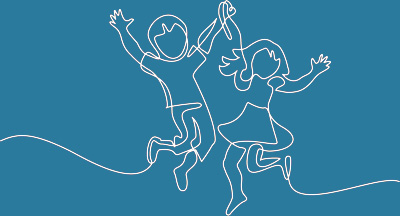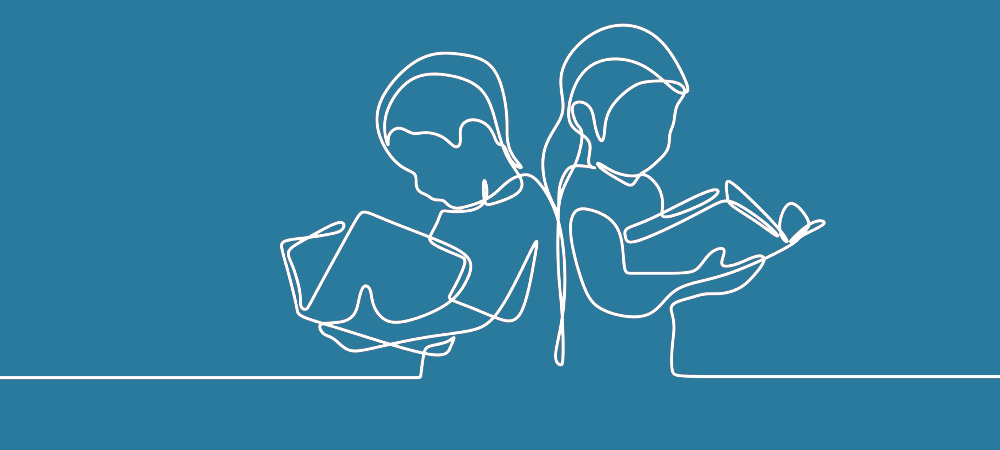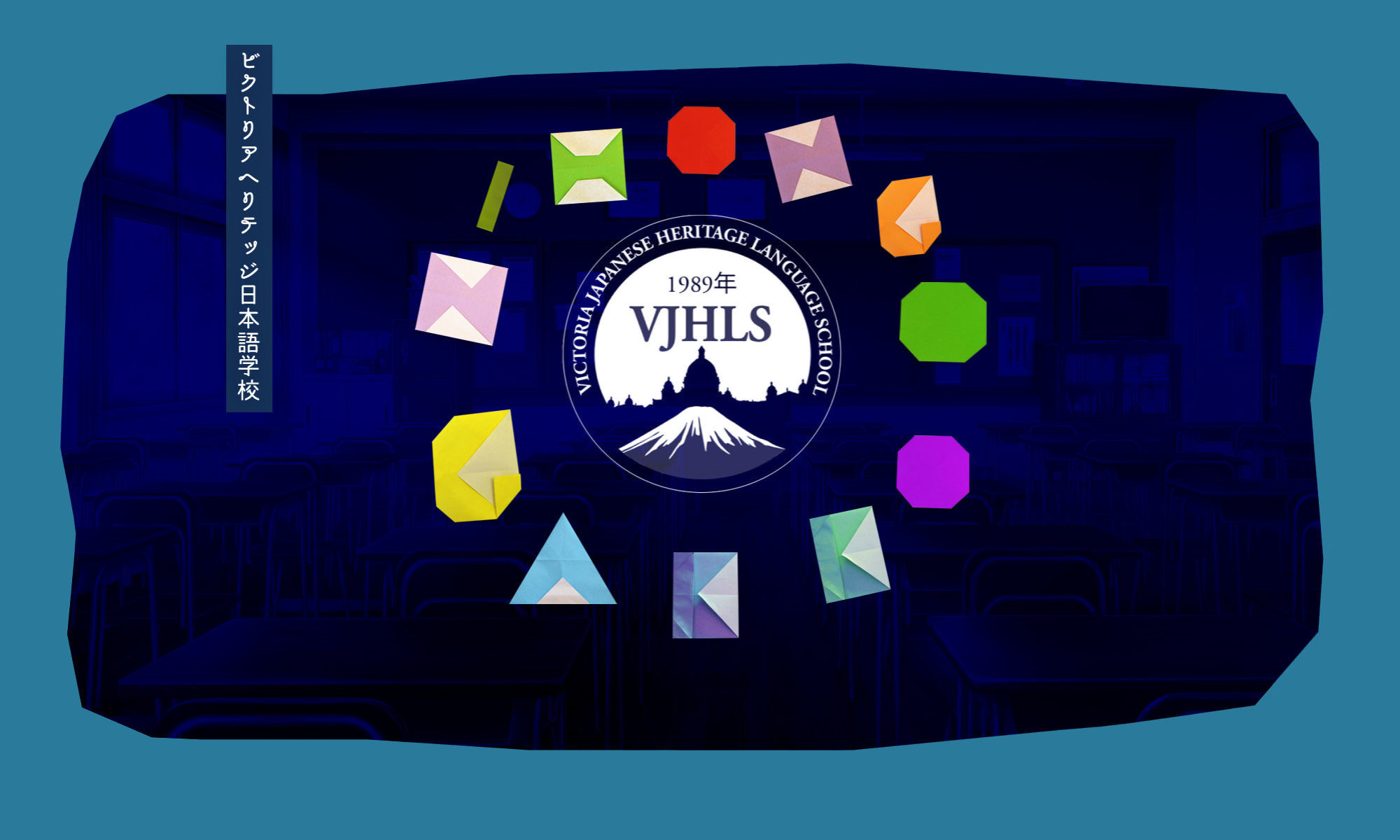

Located on Vancouver Island on the west coast of Canada, Victoria is a beautiful city with a temperate climate that allows outdoor activities throughout the year. Victoria is the capital city of British Columbia, and more than 390,000 people reside in the region.
Our school was founded with the intention of providing the opportunity for children who come from a Japanese background to become familiar with and learn Japanese in this rich environment. We have always been committed to creating a school environment where learning is fun.
Students may enroll in the school from age four. The curriculum includes textbooks that are also used in Japan, in addition to various teaching materials, worksheets, and contents from the Internet. Lessons are all taught in Japanese based on a communicative approach that is aimed at developing student listening, reading, writing, and speaking abilities.
The Victoria Japanese Heritage Language School also places a strong emphasis on introducing Japanese customs and traditions, such as the importance of the four seasons in Japanese culture. Children enrolled at the school have the opportunity to explore and develop an interest in their Japanese heritage while growing up in Canada.
As well, since our school is a charitable organization, the contribution of volunteer work by each member is essential in order to run the school smoothly.
Location
Camosun College Lansdowne Campus
3100 Foul Bay Rd, Victoria, BC V8P 5J2
Class time
Friday 4:00pm-5:30pm


Our organization is a registered charity established in 1989 to support the operation of the Victoria Japanese Heritage Language School. The volunteer board of directors are elected at the annual general meeting (AGM) by the members (parents or guardians of enrolled students) and oversee the work of the organization. Members who are not directors also participate in other volunteer activities to assist with the operation of the school. You can find detailed information about these volunteer responsibilities here.
The school not only supports children’s language learning, but also provides opportunities in fostering cultural identity and recognizing our evolving diverse community. If you would like to support us, please contact us. As a registered charity, we are able to provide official donation receipts for your contributions.


All instructors at the school are native Japanese speakers with teaching experience; some instructors have received formal training and are accredited teachers.
Principal: Naoko Yamada
Vice Principal: Makiko Cardinal
An additional 13 instructors teach at the Japanese Heritage Language School. These instructors are supported in the class by assistants. Parents and students from Japan volunteer as assistants.


2022-2023 Board of Directors
The Victoria Heritage Japanese Language School Society is made up of parents of students at the school, and elects a volunteer board of Directors each year.
Board Of Directors
President: Yuki Kajimoto
Vice President: Kiyoko Imai
Treasurer A: Shiho Yamada
Treasurer B: Aiko Hirano
Secretary A: Midori Igarashi
Secretary B: Sayuri Kajiwara
Volunteer Supervisor: Yoko West
2023-2024 Board of Directors will be posted in the end of September.


Have fun while learning Japanese
The Victoria Japanese Heritage Language School is a collaborative, non-competitive learning environment that focuses on providing each student with the tools they need to learn Japanese. We help our students explore and develop a lifelong interest in the Japanese language, at their own pace, and while having fun. Students are encouraged to achieve their full potential in the Japanese language while working year over year towards developing the equivalent Japanese Grade 4 (elementary school) literacy.
However, first and foremost, the Victoria Heritage Japanese Language School places the highest value on the individual abilities and interests of each student. Childhood is an important time for exploration and growth, and we are always excited by the unique potential of each and every student.
Students are encouraged to develop a deeper understanding of Japanese language and culture
The Victoria Heritage Japanese Language School introduces students to Japanese customs and traditions, as well as key concepts such as the importance of the four seasons in Japanese culture. By learning about Japanese culture, students will be able to better understand and identify with their own heritage.
Exam preparation
Students enrolled in senior level classes (middle and high school grades) at the Victoria Japanese Heritage Language School focus on preparing for the BC Provincial Grade 12 Japanese exam and the Japanese Language Proficiency Examination. The school uses these two tests as benchmarks for guidance when designing curriculum, and we encourage students at the appropriate level to sit for them.





Since our homework is provided all in Japanese, it is expected that parents/caregivers can speak Japanese fluently to help with their homework where needed so that students understand the classes with little difficulty.
Because students spend only 90 minutes in class each week, they only have time to learn the basics during each lesson. Without practicing and using Japanese at home, outside of the classroom, your child’s language ability will not improve. Short times spent exposed to Japanese language frequently throughout the week between classes will help secure language acquisition and develop proficiency in Japanese. It is also important for children to speak Japanese at home as much as possible. As a parent/caregiver , it is very important to create the environment where the students can speak Japanese comfortably.
Reinforcing Japanese from an early age
Education is a lifelong process. For example, most children master nursery rhymes, addition and subtraction, or riding a bicycle or learning to ski by practicing a little every day, and this is true even for adults. Learning language works in much the same way, so even providing children with the opportunity to read a Japanese book or listen to a story will help language acquisition. Try to spend 10 or 15 minutes each day with your child “studying” Japanese, such as reading a picture book, singing nursery rhymes, or reading a story together. Every little bit makes a difference.
Speak Japanese with your child as much as possible
At least one parent in your household should speak Japanese as much as possible during daily life. Many Japanese parents with children enrolled at the school have mastered English, and tend to switch to that language as a default with their families. It’s sometimes easier to just use English with your children, but if Japanese is not emphasized within the home, your child’s language ability will never improve. As a result, it’s important to converse in Japanese and allow your children to become familiar with the language. It takes a lot of effort at home, away from the classroom, for children to become truly proficient in Japanese.
Explore your child’s interest in Japan
Make learning Japanese more concrete and real by using the following in your home:
– World maps (written in Japanese)
– Japanese calendar
– Hiragana and Katakana workbooks
It’s also important to discover what interests your child most about Japan. Japanese television shows or even the Japanese instructions for plastic model kits are useful, concrete resources for developing an interest in the Japanese language. For example, some children who dislike reading books may actually prefer to read manga, which often has furigana to help pronounce more difficult Chinese characters.
It’s important to be creative when approaching language learning and acquisition, and be committed to using Japanese in as many daily situations as possible.
Learning Japanese takes steady, sustained effort
Not all students who attend the school are there because of their enthusiasm for learning Japanese. Some students are enrolled by their parents, while other students come each week to play with their friends. But all students who attend the school have a chance to spend some time each week reading, speaking, writing and listening to Japanese. Language acquisition is like a marathon, with stops and starts and changes of pace allowed along the way. Students should allowed to take their own time while always focusing on reaching the ultimate goal of learning Japanese.
As the students advance through the school, their Japanese ability will increase, and their motivation to continue to explore and learn the language increase as they begin to want to write letters to grandparents and relatives living in Japan, or watch Japanese movies and television programs, or even travel to Japan itself.
The first years spent at the Victoria Japanese Heritage Language School create a strong foundation for learning Japanese. Students will become proficient in Japanese at their own pace, and it’s possible some will be faster at grasping certain concepts, while some may be slower but will master other language skills. Each child develops as an individual, taking their own path to reach the goal. As parents and teachers, it’s important to support each student to develop as an individual.
Fostering self-confidence and developing learning strategies for a lifetime
As your child achieves success, be sure to recognize and praise these accomplishments. By encouraging your child, you are helping your child learn. No matter how long it takes your child to achieve a goal, it’s important to recognize success. You will know your encouragement is successful when your child takes ownership of his or her own learning, and you will be able to suggest or guide them toward achieving even bigger and more audacious goals.
It’s important to foster self-confidence in children. “Yes I can,” is something every child should be able to say with confidence. When children become confident to tackle new challenges, concentration and classroom performance increase. If only errors and mistakes are identified, and not student successes, motivation and trust will decline and the student will become disengaged. Recognition and praise are the keys to student success.
The role of homework and self-study
Because students only meet for classes once each week, instructors rely on homework to help language acquisition. Please try to incorporate this homework into your daily Japanese conversation at home. If five pages of homework are assigned to be completed by the next class, try completing one page of homework each day. If you and your child can do this, you will be able to speak Japanese on a daily basis – even with a busy schedule, you should be able to to fit in 15 minutes of study every day. By the time your child reaches high school grades, his or her Japanese language ability should be high enough that he or she will be able to look up unknown words, and should be able complete homework on his or her own. Therefore, your opportunities for interacting with your child in Japanese will start to slip away. Instead, use the homework itself as a starting point for practicing Japanese at home. Try not to rely just on the homework as the basis of your conversation, but also introduce Japanese culture by investigating new and unknown words, and try to encourage your child to explain new concepts. When your child is teaching you, he or she is developing and learning. Ultimately your child must learn independence and autonomy.


At the Victoria Japanese Heritage Language School, students, caregivers, instructors and staff (including classroom assistants and volunteers) are all focused on creating a comprehensive and complete environment for learning Japanese.
In order to achieve this, please:
1. Refrain from running in the hallways or creating unnecessary noise.
Since we rent space at Camosun College’s Landsdowne Campus, our classes are often conducted while students and instructors are attending class at the college, so it is important to be quiet.
2. Use the toilet before class
3. Greet teachers and others students before and after class
4. Behave and play without harming or threatening others
5. Do not bring toys, food or valuables to class
6. Speak Japanese as much as possible


If you are interested in enrolling your child, please fill out the form of inquiry. We will contact you back as soon as we can.


1. Society dues: $30.00
2. SY 2023/24 Annual Tuition: $435.00 per student.
*Tuition may be revised from the next academic year due to price increases such as classroom rental fees and educational material fees.
3. Volunteer Deposit: As a member of a charitable organization, all members have a duty to do volunteer work for the school unless uncontrollable circumstances exist. For the list of volunteer roles, please refer to Volunteer Job Descriptions. For those who are not able to fullfill duties will be exempt with $150 of Volunteer Deposit. If you are looking for the examption, please read Volunteer Deposit Policy before paying the deposit. Please be reminded that once the volunteer depot is paid, it is not refundable without the cancellation process of the exemption. If your situation changes for volunteer duties, please notify the board in advance for the refund of the deposit.
Payment Method
We accept ONLY e-Transfer.
Please click here for the details of fees.


Class hours: Friday afternoon 4:00 pm to 5:30 pm
September to June: According to the schedule of Camosun College.
Special events: Sports Festival, School Festival, Speech Contest, Presentation Contest, etc.
Click here for the Annual Schedule

The curriculum of each class is here.


Toilet training
Students must be toilet-trained prior to enrolling in the preschool class. Parents, caregivers or guardians should also be present and available during classtime to accompany your child to the lavatory, as certain laws and regulations may prevent instructors, assistants or other parents etc. from doing so.
Accommodating special needs students
Regardless of the class level, the school must be notified if a student requires special assistance during the class. You can notify us by stating this in the application form (this is to ensure safe and optimum operation of the class and is not intended to reject your child’s enrollment). Please understand that we will ask you to come to school for an interview and assessment in order to further understand your child’s status and situation before we approve the enrollment.
Japanese Language Ability
All the classes are given in Japanese so it is required for your child to have the ability to understand the class. All students are required to speak Japanese in the class to focus on one language during the class. If English is spoken in the class, this would disrupt the whole class and jeopardizes other student’s opportunities to hear and speak more Japanese. There fore, speaking English during the class is strongly discouraged.


・Those withdrawing from the Victoria Japanese Heritage Language School within five weeks of initial enrollment will be required to pay $45 admin fee and one month of school fees, regardless of the number of classes attended during this five-week period; any remaining fees prepaid to the school will be refunded.
・Those withdrawing from Japanese Heritage Language School more than five weeks after enrollment will be required to pay $45 admin fee and will be refunded half of any additional fees prepaid to the school.
If you would like to withdraw your child, please submit Withdrawal Form to school. Please see Tuition Payment and Refund Policy for the refund policy.
